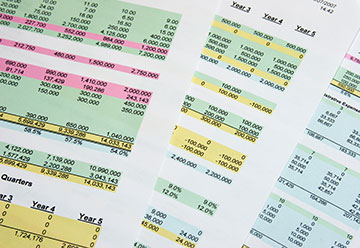AICPA Urges Senators to Maintain Availability of Cash Method for Accounting Firms and Others
May 26, 2016
 The American Institute of CPAs (AICPA) encouraged members of the Senate Finance Committee in an April 25 letter to preserve the use of the cash method of accounting for tax purposes as they ponder business tax reform.
The American Institute of CPAs (AICPA) encouraged members of the Senate Finance Committee in an April 25 letter to preserve the use of the cash method of accounting for tax purposes as they ponder business tax reform.
In a letter submitted for the record of the committee’s hearing on “Navigating Business Tax Reform,” AICPA President and CEO Barry C. Melancon, CPA, CGMA, wrote, “As the Committee drafts its proposals, we urge maintaining the current availability to use the cash method of accounting for pass-through entities and personal service corporations, such as accounting firms. Determining taxable income under the cash basis is simple in application, is a method of accounting which the service industry has used for decades, and must remain an option for these businesses.”
The letter explained that under the accrual method, many accounting and other service-type firms would need to accelerate a significant amount of income into the current taxable year despite not receiving the actual payment from their clients. This increase in tax liability could have a significant negative impact on a new owner’s ability to finance entrance into a partnership. Additionally, limiting the use of the cash method may result in the requirement of a CPA to take out a personal bank loan for the sole purpose of paying his/her increased tax liability. In addition to income tax consequences, some partners would also pay more self-employment taxes under the accrual method. Further, the AICPA believes a gross receipts restriction on the use of the cash method would unfairly impact accounting firms and could threaten their ability to expand.
“The AICPA has consistently supported tax reform efforts that promote simplicity and economic growth and do not create unnecessary administrative and financial burdens on taxpayers,” Melancon wrote. “An accrual method mandate falls short in that regard. We strongly urge retaining use of the cash method of accounting.”
